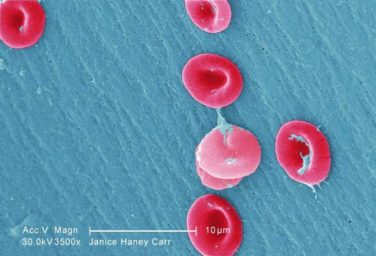FROM BMC INFECTIOUS DISEASES
More than half of hepatitis B patients were vitamin D deficient, and deficiency was associated with worse outcomes, in a Vietnamese study published in BMC Infectious Diseases.
A total of 48% of 165 chronic hepatitis B patients, 54% of 127 hepatitis B virus (HBV)-associated cirrhosis patients, and 55% of 108 virus-associated hepatocellular carcinoma (HCC) patients had levels below 20 ng/mL, compared with 33% of 122 healthy controls.
Vitamin D levels inversely correlated with viral DNA loads, and lower levels were associated with more severe cirrhosis. On multivariate analyses adjusted for age and sex, HBV infection was an independent risk factor for vitamin D inadequacy ( BMC Infect Dis. 2016 Sep 23;16[1]:507 ).
“These findings suggest that serum vitamin D levels contribute significantly to the clinical courses of HBV infection, including the severe consequences of” cirrhosis and HCC. “Our findings allow speculating that vitamin D and its analogs might provide a potential therapeutic addendum in the treatment of chronic liver diseases,” concluded investigators led by Nghiem Xuan Hoan, MD , of the Vietnamese-German Center for Medical Research in Hanoi.
Total vitamin D (25[OH] D2 and D3) levels were measured only once in the study; the cross-sectional design meant that “we could not determine the fluctuation of vitamin D levels over the course of HBV infection as well as the causative association of vitamin D levels and HBV-related liver diseases,” the researchers explained.
Low levels could be caused by impaired hepatic function, because the liver is key to vitamin D metabolism. HBV patients also tended to be older than the healthy controls were, which also might have contributed to the greater likelihood of deficiency.
Even so, a case seems to be building that vitamin D has an active role in HBV liver disease. Other investigations also have found an inverse relationship between viral loads and vitamin D status, and low levels previously have been associated with HCC.
Vitamin D is involved in adaptive and innate immune responses that clear the virus and other infections from the body, or at least keep them in check. Deficiency has been associated with susceptibility to various infections and inflammatory diseases, as well as carcinogenesis.
There was no industry funding for the work, and the authors had no disclosures.




